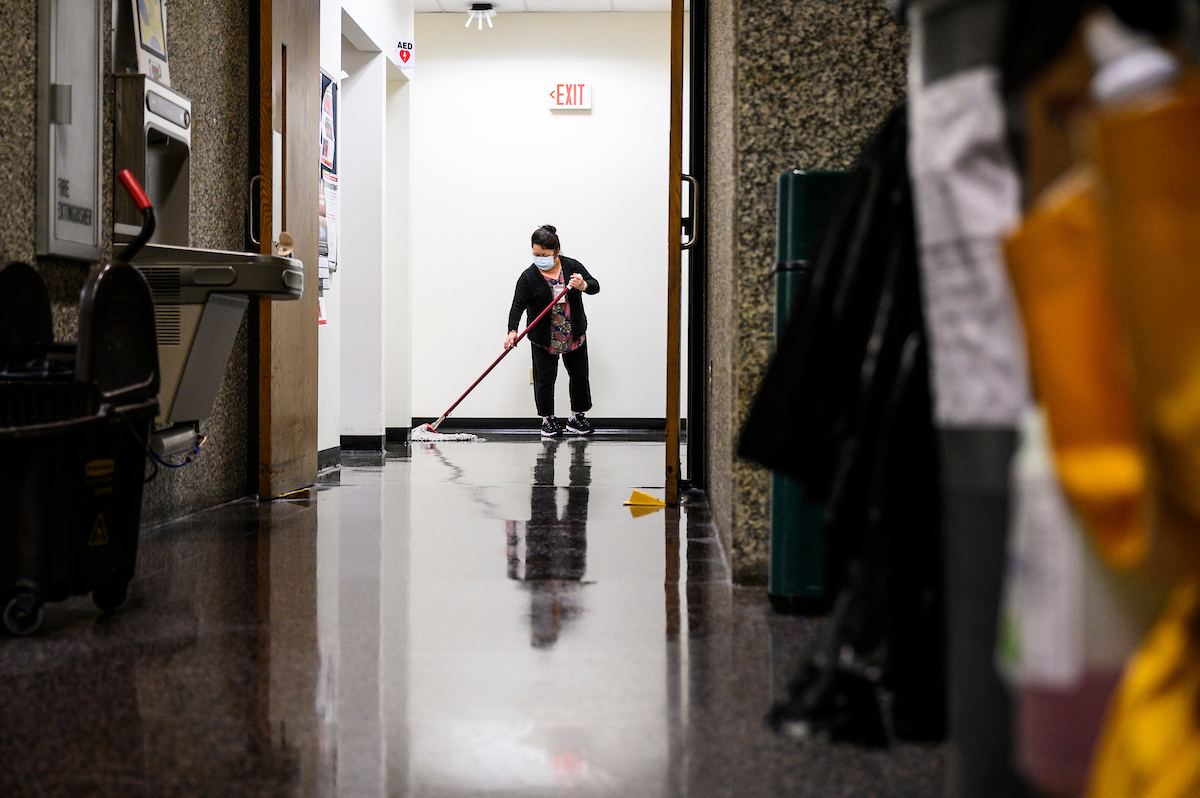
Considered essential staff under COVID-19, UW custodian Mailo Thor mops a hallway in the WARF building. Jeff Miller
Due to the pandemic, many companies have been forced to transition their employees to working remotely. And some workplaces have already made the decision to continue doing so even after the pandemic is over, according to Jirs Meuris, a professor in UW–Madison’s Department of Management and Human Resources at the Wisconsin School of Business.
“Probably for certain jobs it works well, but for others, that is not necessarily the case,” he says.
A main advantage to remote working for companies is the cost savings, because employers don’t need to rent or purchase as much office space or pay for utilities and other building maintenance costs. Meuris adds that the ability to work remotely can also be seen as a benefit for staff who desire to work from home.
A downside for employees, though, is that “it’s much harder to set boundaries with your work and home life.” There is the temptation to answer work emails or complete other tasks during evenings or weekends, he says, and this can lead to burnout or work–family conflicts. A second drawback, he adds, is that a lot of innovation and problem-solving “happens through small conversations that people have” when they run into each other throughout the course of the day, “so you have a lot less of that.”
Whether businesses end up bringing their employees back to the office or not, Meuris says, it’s going to take a while for things to feel normal and for organizations to recuperate from the disruption caused by the pandemic.
Published in the Winter 2020 issue



Comments
No comments posted yet.